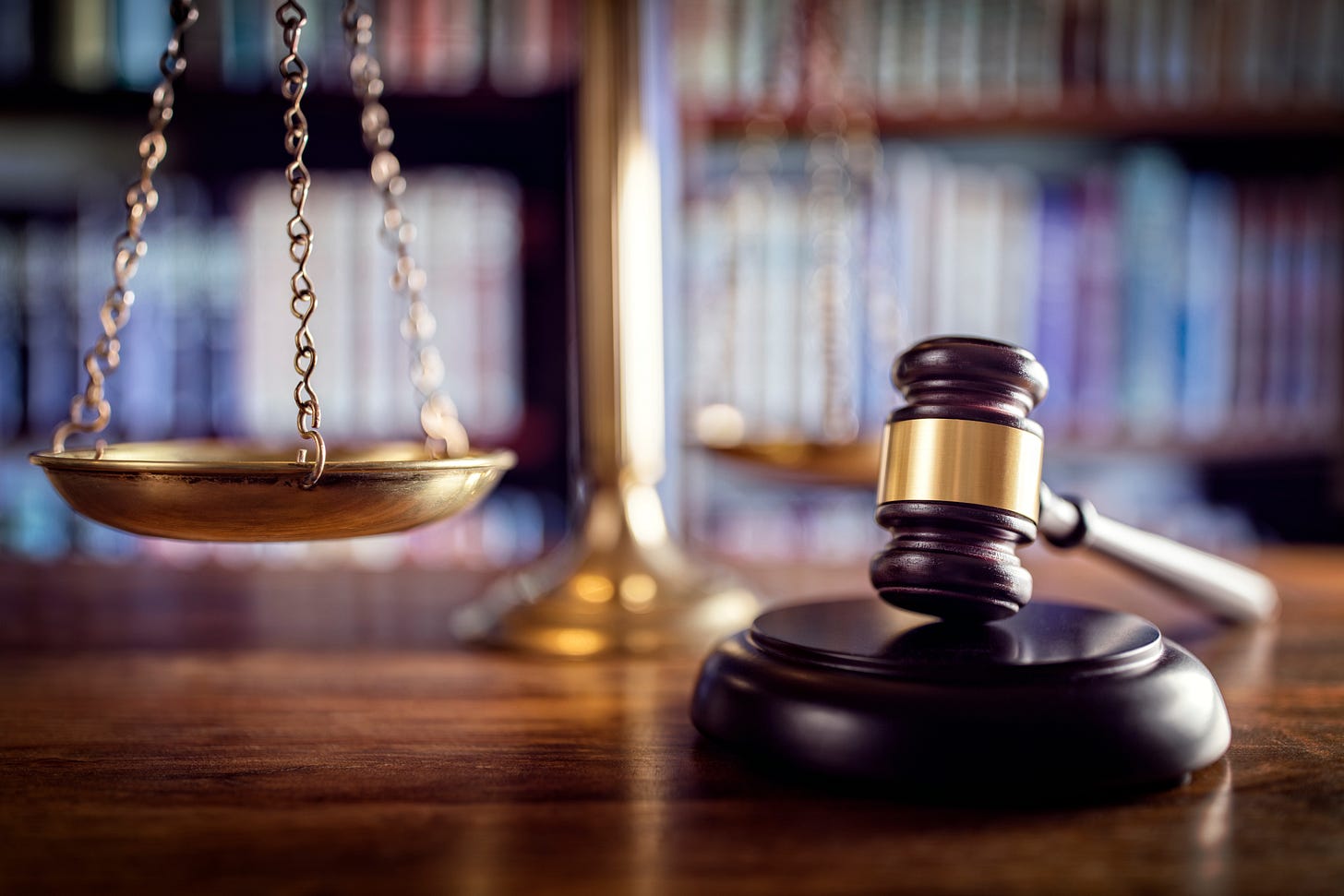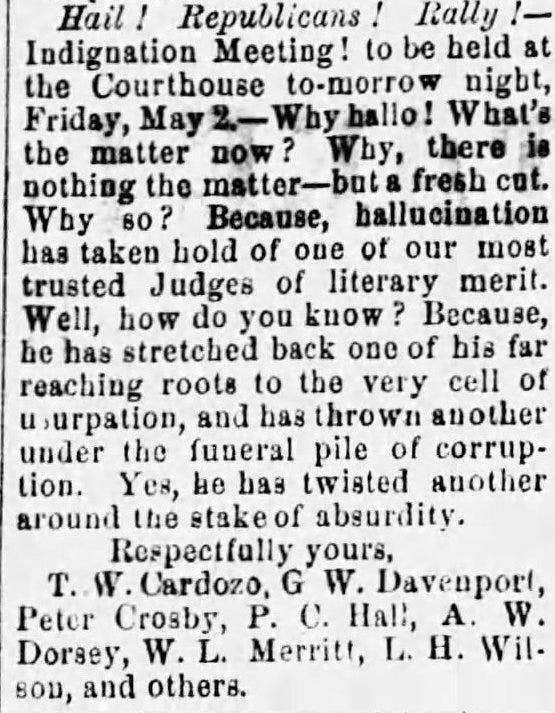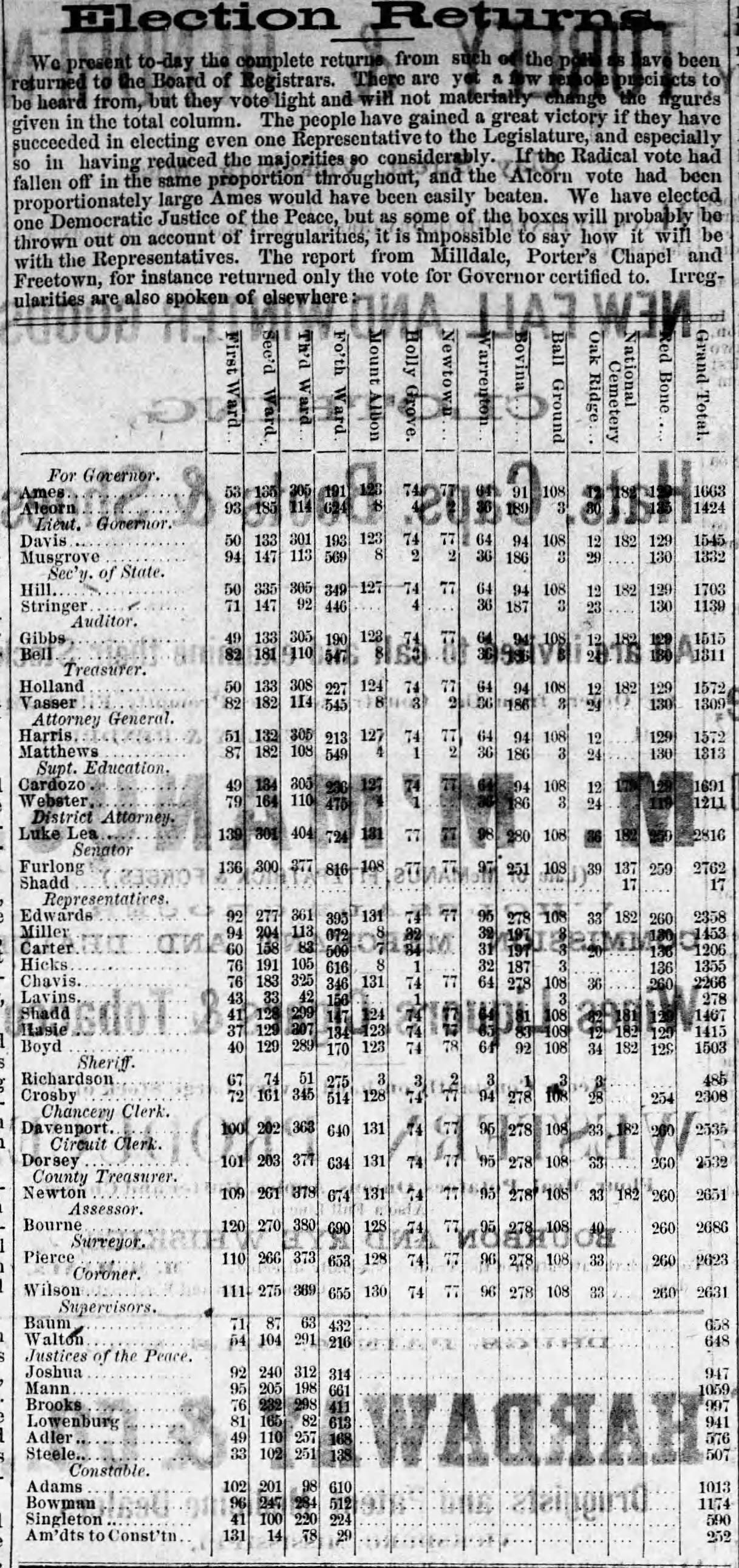BROOKS vs. YMCA
The story of a Black Justice of the Peace suing the YMCA for damages in 1873 Mississippi
On February 7, 1873, Governor Rigley C. Powers signed into law Mississippi’s Civil Rights Bill.
According to the Mississippi Encyclopedia, “The Civil Rights Law of 1873 sought to guarantee a degree of social equality beyond mere civic equality by requiring equal accommodations and prohibiting discrimination in places of public accommodation and entertainment such as inns, hotels, and theaters.”
Before we go into 1873, let’s revisit the timeline of the rights of Blacks up until then.
1865, the 13th Amendment which officially abolished slavery across the United States.
The Reconstruction Act of 1867 put the Southern states under martial law, to make them act right because they had put Black Codes in place to restrict the freedom of Blacks.
1868, the 14th Amendment came into play which broadened the definition of citizenship. Granting equal protection to formerly enslaved people.
1870, the 15th Amendment guaranteed that a citizen’s right to vote would not be denied because of race, color, or previous condition of servitude.
Let’s just be clear. When they said “citizen,” they meant men. Women didn’t get the right to vote until the 19th Amendment in 1920! That’s another soapbox for another time.
Anyway, back to 1873. Now that we’re refreshed with the timeline of events. You know where we were as a country.
Because of the 15th Amendment many Black men in the South voted for other Blacks into office.
So when Governor Powers of Mississippi signed the Civil Rights Law of 1873, the formerly enslaved Black men said well, let’s test these waters shall we?
According to Christopher Waldrep’s book, “Roots of Disorder: Race and Criminal Justice in the American South, 1817-80,” there was an incident in March of 1873, where a Black official purchased a ticket at a theater and refused to sit in the colored section. Whites physically ousted him from his seats.
I wish I could find more info about that incident, but another story that caught my eye, was the case the Justice of the Peace Sydney Brooks took up against the YMCA.
First, I thought how bold for this time period. Let me dig deeper. And second, I didn’t even know that YMCA’s was around then. They actually began in London in 1844 and came to America in 1851. But I digress.
So, in May of 1873, Brooks bought a ticket to hear Vermont poet John G. Saxe lecture at the YMCA in Vicksburg and he insisted on sitting in the White section.
They were like no.
Brooks and I’m paraphrasing, was like, alright bet. I know the law and I’m going to sue you based on the Civil Rights Law of 1873.
The case was submitted to Judge Arthur, a White man, who reserved the right to consider it and sought out counsel.
Well, after counsel and political pressures, Judge Arthur deemed that Justice Brooks, has no rights because the YMCA is a private institution, and they can do whatever they want. So, case dismissed.
When Black people of the county heard this, they were like hold up. We, in outstanding numbers, voted Judge Arthur into office because he said he was for us and would uphold the law. And now, he’s going to do us like this? We are not having it.
Peter Crosby, T. W. Cardozo, Davenport and other Black leaders put out this handbill.
And from that moment, it was on.
They were determined to not be tricked by Whites who were wolves in sheep’s clothing and they made a great effort to elect as many Black men into office for the upcoming November election. The ones I know for sure on the ticket below that are Black are T. W Cardozo, George W. Boyd, Augustus Newton, Peter Crosby, A.W. Dorsey, G.W. Davenport, Sydney Brooks, and G.W. Walton.
And they succeeded.
The victory was short lived as angry racist Whites organized and began the reign of terror in the South and also many claimed the Black elected officials were corrupt. We’ll explore some of that in future articles.
The voter intimidation was a real threat. Organizations like the KKK and the White League/White Lines threatened and killed many Black people to make sure elections didn’t go in their favor and to keep White Supremacy supreme. That’s why after the Reconstruction Era there were hardly any Black elected officials left.
But I must say, hats off to people like Justice Brooks who had the courage to stand up for what was right. I can barely imagine how terrifying it must have been for any Black person to test the waters, then rally, and get an initial win.
Justice Brooks is one of the lesser-known people who had the courage to stand up for what was right. His actions were one of the many catalysts to increase voter turnout in hopes of achieving equal rights and a better future for people of color.






